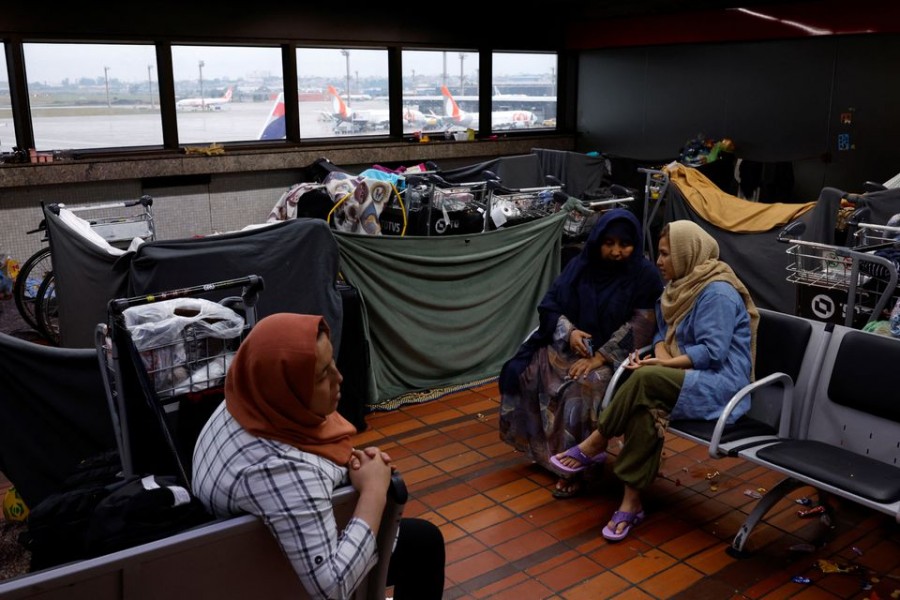Blankets and luggage carts have become the makeshift homes to more than a hundred Afghan migrants in Sao Paulo's international airport, serving as a temporary shelter for refugees after their year-long odyssey since the Taliban returned to power.
Brazil has approved about 6,000 humanitarian visas for Afghan refugees since late last year. But local authorities near Sao Paulo's Guarulhos airport said they had little idea there would be dozens of Afghans arriving daily this month, according to Reuters.
Their numbers may continue to grow in coming weeks, as an average of four direct flights arrive daily from the Middle East and South Asia. With travel to Qatar surging for the World Cup in November, airlines are adding more flights to the region.
The airport's refugee assistance agency estimated that some 130 Afghans are encamped at the airport's Terminal 2, as efforts to house them have not kept up with the influx of new arrivals.
The refugees told Reuters they arrived without promises of a place to stay and now the local government is scuttling to find places for them outside the airport grounds.
Federal prosecutors pressed the federal government this week for details of what it is doing to handle the situation, according to a letter seen by Reuters.
Brazil's Justice Ministry, which handles immigration issues, did not immediately respond to a request for comment.
The families and single men at the airport said they had no choice but to endure a chaotic year-long journey to Brazil in order to flee a Taliban regime that persecutes anyone with any association with the previous, Western-backed government.
"All these people you see here, their lives were at risk in Afghanistan," said Mohammad Aryobee, a human rights activist and civil engineer who arrived in Brazil on Tuesday after fleeing from Afghanistan, he says, for having "secular ideals."
"The reason (for being here) is to save their lives, to save their families," he added. "My expectation is not so high. ... I need a place to live and find a small job, to improve my life."
The Sao Paulo state government is working with municipal authorities and civil society to attend to basic needs of the arriving refugees.
"We are able to give them three meals, a blanket, vaccination," said Swany Zenobini, part of the "Afghan Front" collective that mobilized to help receive and accommodate of the refugees. "Today we are managing to guarantee this because civil society is applying pressure on us."


